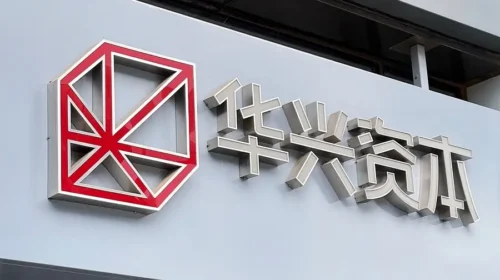Fosun moves on from debt crisis with renewed focus on tourism, healthcare

The conglomerate is looking to take Fosun Tourism and Henlius private as its finances improve, helped by asset sales
Key Takeaways:
- In his New Year’s speech, Fosun founder Guo Guangchang highlighted previously announced plans to privatize Fosun Tourism and Henlius
- The buyouts signal the sprawling group is moving on from an earlier debt crisis as its finances improve, helped by asset sales and debt reductions
By Warren Yang
After a near brush with a financial crisis, life goes on for Fosun International Ltd. (0656.HK).
The main investment arm of billionaire Guo Guangchang’s Fosun conglomerate is steadying its ship after skirting a potential liquidity crisis by dumping assets over the past couple years. With its finances now in a better shape, the group is moving on to the next stage, looking to bolster its core businesses in the tourism and healthcare sectors.
In his recent New Year’s speech, Guo highlighted recently launched privatization bids for Fosun Tourism (1992.HK) and Henlius (2695.HK), two of his group’s listed units. The move underscores Fosun’s previous assertion that tourism and healthcare will be two of its key focus areas going forward. It also shows that the company has sufficient financial resources to fund such buyouts, which is a promising sign, given that its situation looked far more dire not too long ago.
Fosun unveiled the privatization plan for Fosun Tourism about a month ago, proposing to buy back its shares held by external investors for HK$7.80 apiece, a 95% premium to the stock’s last closing price before the announcement. The proposal will cost about HK$2.3 billion ($296 million), which Fosun Tourism, owner of the Club Med resort chain, will pay with its own cash, borrowing or a combination of both.
The Henlius deal will see the company privatized by its direct parent — Fosun Pharmaceutical (2196.HK) – at a cost of HK$5.4 billion, under a plan announced last June. Like Fosun Tourism, Fosun Pharma will use internal or external capital to fund the transaction.
While the buyout prices offered generous premiums from the latest trading prices before the deals were announced, both were still about half of each company’s IPO price – showing just how neglected the shares had become.
“Looking back on the wonderful 2024, we’re looking forward to embracing a new chapter in 2025,” Guo said. “We will be able to open up new paths in the face of challenges by making the best products and services and moving towards a better future with every family.”
Fosun is looking to revamp its key businesses as its finances improve thanks to asset disposals that brought in much-needed cash, as well as efforts to reduce its debt. Helped by proceeds from a slew of asset sales, the group’s subsidiaries were able to repay or repurchase nearly $3.5 billion of offshore bonds in 2022-2023, according to data compiled by Bondsupermart.
The group’s current focus on slimming down is a stark contrast to its earlier debt-fueled acquisition campaign of the 2010s that turned it into an empire with a sprawling portfolio of businesses across the globe. Fosun quickly amassed a portfolio of trophy assets ranging from fashion brands to insurers and even a football club in that buying spree. But its cash flow significantly deteriorated during the pandemic, jeopardizing its ability to pay debt that was coming due. To avoid a default, it started scrambling to sell assets in 2022.
Although that strategic U-turn wasn’t part of its earlier plans, it is bearing fruit. Fosun’s group-level cash holdings grew in the first six months of last year from the end of 2023 after shrinking for years, while the total amount of its interest-bearing debt decreased.
Improving funding access
As things look up for the company, banks are more willing to provide it with new funding to achieve its latest objectives. From last May to August, it borrowed more than $800 million in total to refinance a three-year offshore syndicated loan. At the end of last August, Fosun also secured a HK$1.6 billion one-year syndicated loan, mostly to roll over a facility for a Hong Kong property project.
Improving access to funding, particularly bank refinancing, was one major factor behind S&P Global Ratings’ decision last May to affirm Fosun’s credit ratings with a stable outlook. The rating agency said Fosun should be able to continue to manage its debt obligations with bank support and proceeds from ongoing asset sales, although short maturities of its liabilities remain a risk.
That vote of confidence contrasted sharply with the tone coming from credit agencies in late 2022, when both S&P and Moody’s downgraded Fosun’s corporate bond ratings on concerns about its thin liquidity and difficulties it might face in trying to shore up its balance sheet.
The combined market value of Fosun’s listed companies now far exceeds the total amount of its offshore debt maturing in the next few years, so raising funds to cover those liabilities through divestment alone won’t be too hard, according to a Bondsupermart note published last April.
At the same time, though, continuing asset disposal will inevitably hamper Fosun’s overall revenue and profit growth. The company’s group-wide aggregate revenue barely increased in the first half of last year – it rose just 0.8% year-on-year to 97.8 billion yuan ($13.3 billion). And worse yet, its net profit dropped 47% to 720 million yuan.
So, it’s critical for Fosun to select the most promising businesses to keep and nurture them well for its long-term prosperity. In terms of profitability, its health segment, which includes Henlius and is anchored by Fosun Pharma, was its top performer in the first half of last year, with its net profit contribution jumping 43% from a year earlier even as its revenue actually fell a bit.
Notably, Henlius, founded in 2010, became profitable in 2023, a big achievement for a biotech company. Its net profit continued to grow last year, by 14% year-on-year to 386 million yuan in the first half of 2024. Yet the company’s shares traded at a fraction of their peak in 2020 before Fosun’s buyout plan was announced, so it’s easily understandable why the group wants to take it private.
Fosun Tourism is part of Fosun’s “happiness” segment. While the overall segment’s net profit dropped in the first half of last year, Fosun Tourism’s net profit bucked the trend by growing 20% year-on-year during the period, excluding a one-off gain from a resort sale in 2023. But like Henlius’ stock, the company’s shares have fallen out of favor with investors over the years, in no small part due to the impact of the pandemic.
Fosun International’s own shares aren’t doing particularly well either these days, which isn’t too surprising given all its troubles these last few years. They trade at a meager price-to-sales sales (P/S) ratio of 0.17, which trails the 0.57 for another conglomerate CK Hutchison Holdings (0001.HK).
Such a valuation seems quite low now that repaying debt doesn’t seem to be an immediate concern for Fosun anymore. That may show that investors are waiting to see whether the company can reignite growth with its slimmer asset portfolio and renewed focus on health and happiness.
To subscribe to Bamboo Works free weekly newsletter, click here






